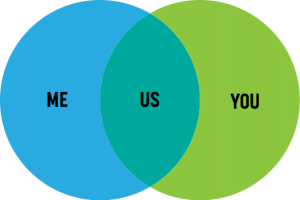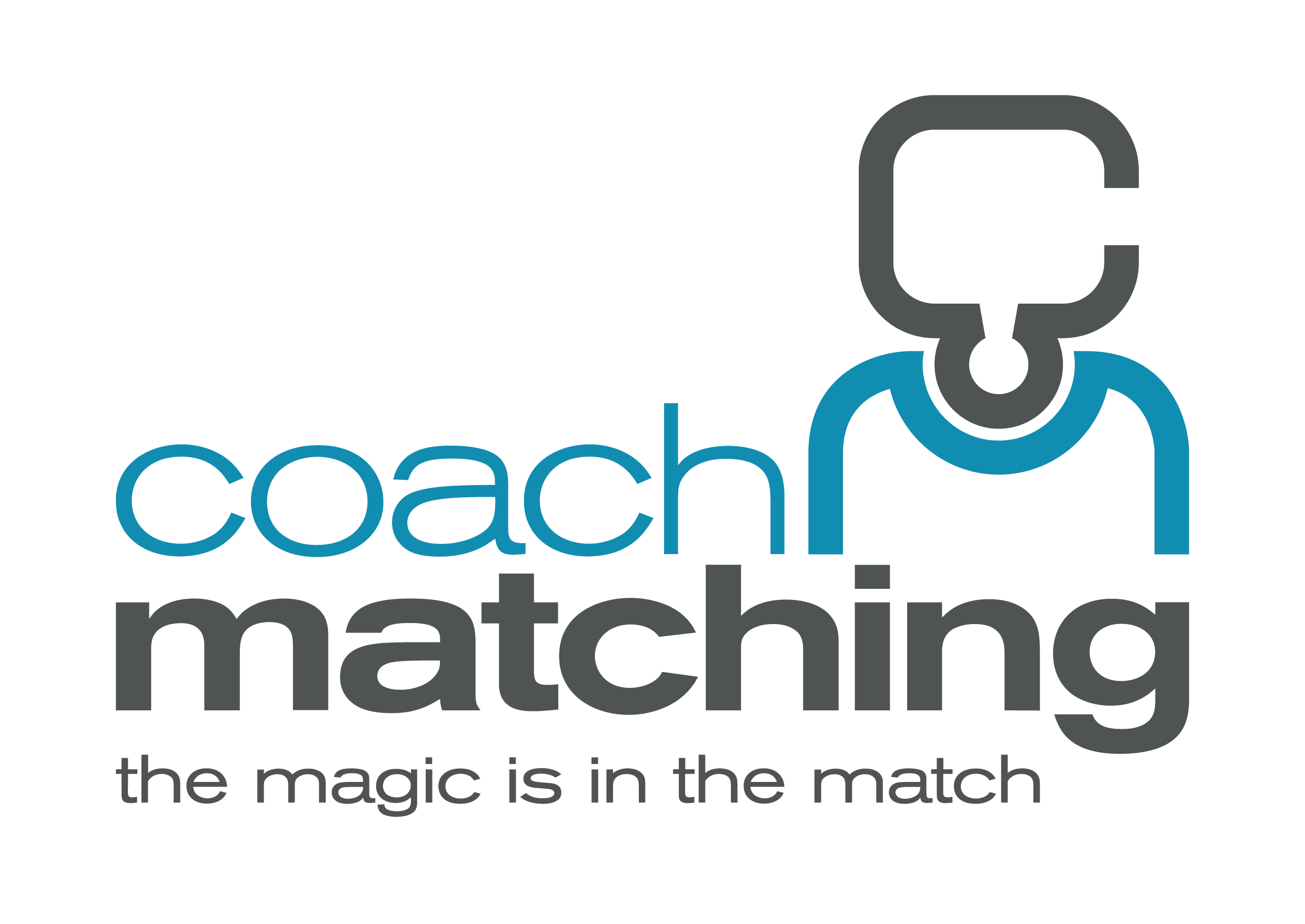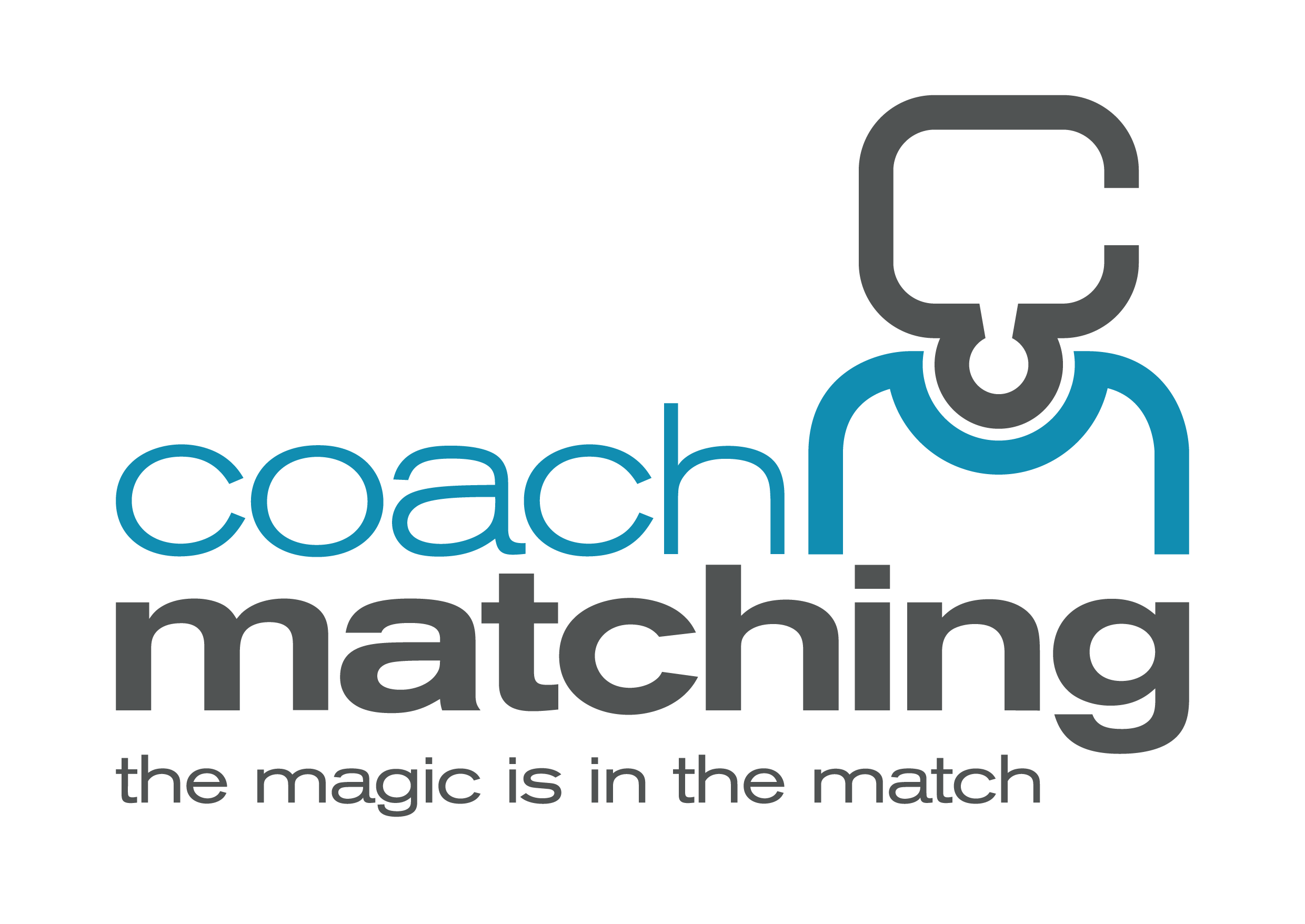
People Are Complicated. Relationships are Not.
I hoped that if I understood the inner world of people (myself included), I would have the skill to relate better and to create healthy, functional and fulfilling relationships. I didn’t imagine at the beginning of that exploration that it would lead to my career and lifetime passion of developing personal and professional relationships. I have since then concluded that relationships are in fact easy, from the point of view that there are only a handful of ‘essentials’ required for the dynamics to work well between people. It is however the complex social, emotional humans within those dynamics that make them so challenging.
A Map of the Territory:
Allow me to illustrate, using the sacred geometrical symbol known as ‘Vesica Pisces’, the landscape of relationship. Each circle represents one person in the relationship space. This is probably the only time when 1+1=3. There is a ‘Me’ and a ‘You’ and a third dimension is created where the two circles overlap, an additional entity called ‘Us’. There are two individuals influencing the ‘Us’ space; this space is co-created. At any point in time, one person will be influencing the relationship positively or negatively, contributing or contaminating it, helping or hindering it.

Co-operation vs Obedience
Although I originally worked predominantly as a couple therapist in the ‘Us’ space, my knowledge of ‘what makes people tick’ evolved into performance and leadership coaching in a professional context. Regardless of hierarchy, relationships are co-created and we cannot control another or change another, the best we can hope for is to inspire him/her to want to collaborate with us. Co-operation and not obedience, is the grease that makes the relationship machine function well. The willingness of a partner/ peer/ spouse/ teammate/ child/ direct report to co-operate is a sign of a healthy relationship. Leaders needs to be skilled in ‘inspiring co-operation’, in building trust and collaboration, in navigating conflict, in influence and in effective communication as a leader. Although they are labelled as soft skills, they’re hard business drivers.
Essentials for Influence:
For one person to influence another, an openness to be influenced by the other is required. Influence demands trust. A climate of trust is essential in any quality relationship. In theory, it’s simple but not necessarily easy. It’s easier when both participants in the relationship want to build trust and both are being trustworthy. Generally, creating a trusting climate between two people requires multiple interpersonal skills and consistency in character. Given that I am only one half of the equation and because relationships are co-created, I can at best, influence/ invite co-operation by being trust worthy.
Trust is also integral to a high functioning team. In fact, its absence creates dysfunction. Patrick Lencioni’s research on leading high-performance teams shows the #1 dysfunction of a team is the absence of trust. “The fear of being vulnerable to team members prevents the building of trust within the team. This occurs when team members are reluctant to be vulnerable with one another and are unwilling to admit their mistakes, weaknesses or needs for help. Without a certain comfort level among team members, a foundation of trust is impossible.”
The bottom line, the more trusting the climate, the more emotional and psychological safety a person will feel. When I feel safe, I am open to being influenced. The challenge with building a climate of trust is that it cannot be manufactured or forced based on title/ rank/ position of power. It is earned.
Psychological Safety in Professional Relationships:
In a recent article about ‘Making meetings a safe space for honest conversation’ (Harvard Business Review), a leader ‘Josh’ was using his meetings to discover how his team was doing, how their projects were progressing, and what they needed in terms of support and resources. He would ask broad questions to initiate open conversation:
- What do you think I need to know?
- Where are you struggling?
- What are you proud of?
He created an environment where there was no pressure to have a perfect answer. The only requirement was to be honest and sincere. The operative word being ‘honest’.
How does a manager of people, a supervisor or leader create an environment that makes people feel so emotionally and psychologically safe that they express their opinions honestly? How does one create a space that people WANT to and are WILLING to be transparent and sincere if they are struggling and need support?
We discover in the article that “Josh is a thoughtful, authentic, and caring manager” —qualities, they say, are needed to create the psychological safety such a conversation requires. “The degree to which a person feels safe in a meeting setting is largely based on their previous experiences. Many of us have — at one point or another — experienced feeling as if we were not heard or appreciated when we spoke up. But when people feel their comments will be listened to and treated with respect, they are more likely to be vulnerable and say exactly what they are thinking. Conversations become broader and deeper when everyone is involved and feels safe enough to speak their minds.”
Bring your A- Game:
We understand in sport that being part of the A-team, requires that we become an A-team player. All A-team members invest time, energy and resources into their knowledge and technical skills in order to be a part of the A-team. We wouldn’t show up as a C or D team player in sport and expect to be included into an A-team producing A-team results. The same is true in personal and professional relationships. We each need to do our part, pull our weight, take ownership for our portion of the ‘Us’. In relationships that equates to having a growth mindset with relationship skills for navigating conflict successfully, collaborative problem solving, giving and receiving feedback constructively.
The journey to improved personal and professional relationships is in becoming a better person or as my colleague calls it ‘better humaning’. Become an A-team player. Ensure your half of the equation is committed and adding value toward the common goal. It might not guarantee the ‘ideal relationship’ in the same way one A-team player does create an A team, but is does at least provide the possibility and potential for it to become idyllic.
I now know this territory very well. Despite this and doing my best to be an A-team player, I still experience challenging relationships. Although I’m better at evaluating an A-team player, sometimes my co-creator has their own agenda and our relationship is not their priority. Longevity in a relationship is not guaranteed and that’s ok. Relationships don’t fail (unless you have very placed a specific outcome and expectation on it). They are the mechanism through which we, as complicated individuals, become better humans. They provide us the opportunity to grow and evolve into wiser, stronger and more compassionate versions of ourselves. No measurement of success will see that as a failure.
Author: Shelley Lewin is The Relationship Architect and the inhouse relationship expert at CoachMatching.
Info@coachmatching.com
www.coachmatching.co.za
021 685 0125


